Stories > Changemakers of the New Era
Changemakers of the New Era
Adapting to the “New Normal”, the 2020 edition of the Young Social Entrepreneurs programme broke new ground with an online experience while continuing to champion innovation and community stewardship.
BY SANDHYA MAHADE VAN
n a changing milieu, social enterprises are a great medium to drive impact quicker on the ground, as they can better allocate resources to the most important initiatives, and are able to provide more innovative methods to solve issues. However, these enterprises also need nurturing to transform brilliant ideas into sellable products or services and build businesses that can sustain impact in the long term,” says Ankit Sachdev, a senior manager at Bain & Company, and a long-term mentor of the Singapore International Foundation (SIF)’s signature Young Social Entrepreneurs (YSE) programme.
Indeed, these were the aims of the YSE programme – which marked its 10th anniversary in 2019 – online for the very first time. The timely pivot helped to overcome ongoing travel restrictions forced by Covid-19, while continuing to nurture budding changemakers. 109 youths representing 19 nationalities offered creative solutions in the areas of agriculture, consumer goods and services, food and beverage, environment and energy, education and training, as well as healthcare technology and digital platforms.
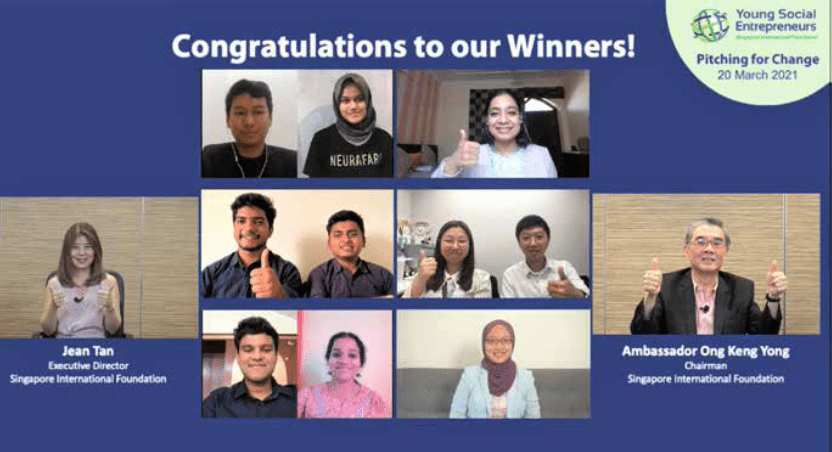
The six winners of the YSE 2020 edition are (clockwise) Lintang Kusuma Pratiwi (left) and Febi Agil Ifdillah (Neurafarm); Akriti Gutpa (Canfem); Fung Ka Yan (left, Gabi); Huda Hamid (Fempreneur Secrets); Rahul Adhikari (left, International Changemakers Olympiad); and Anas H Makki (left) and Rafiq Islam (Safewheel).
And following an eight-month virtual learning journey, six out of 54 shortlisted teams were named winners last March. The teams – Safewheel (Bangladesh), Gabi (Hong Kong, Special Administrative Region of the People’s Republic of China), International Changemaker Olympiad (India), Canfem (India), Neurafarm (Indonesia) and Fempreneur Secrets (Singapore) – were selected based on the impact and scalability of their social enterprises as well as commitment level of team members, and received up to S$20,000 each in seed funding.
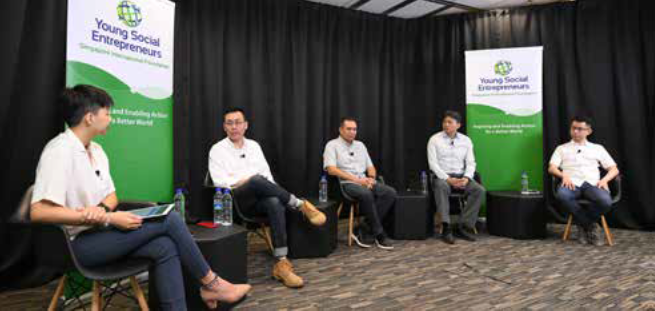
The event was held entirely online, and some of the sharing sessions with Singaporebased experts were presented via webinars to the international participants.
“IN A CHANGING MILIEU, SOCIAL ENTERPRISES ARE A GREAT MEDIUM TO DRIVE IMPACT QUICKER ON THE GROUND, AS THEY ARE ABLE TO BETTER ALLOCATE RESOURCES TO THE MOST IMPORTANT INITIATIVES,” SAYS YSE MENTOR, ANKIT SACHDEV.
Safewheel, along with two other teams – BioPhil (Philippines) and Heirloom (Singapore) – also won the SIF-Deutsche Bank Friends’ Favourite online contest and were awarded gift vouchers of up to S$1,000.
TACKLING DISRUPTIONS
While social enterprises have traditionally provided business solutions to address unmet and emerging needs, the upheaval caused by the worst health crisis known to mankind in recent years has brought greater urgency to the development of ideas that better promote inclusivity and empower vulnerable communities. Social investors, too, are increasingly looking at businesses with the ability to scale and remain viable in a milieu of change.
It is against this backdrop that the YSE programme hopes to carry on its mission of ensuring budding social enterprises get off the ground with access to skills, mentorship and funding. And having to maintain the aspect of social connectivity and communitybuilding among youth entrepreneurs – a key objective of the YSE programme – was no mean feat. “We were challenged by the need to identify the most suitable technology for our purpose, the coordination between different international time zones, and ways to facilitate knowledge-sharing and networking in the digital realm,” explains Geraldine Chin, Head, Impact Networks, SIF Programmes Division.
It helped that the SIF was already on its way to moving some aspects of its YSE programme online before the pandemic struck, including a series of online masterclasses for its over 1,200-strong alumni as the situation unfolded. And these topics – supply chain disruption, crisis- and stress-management – complemented with insights from industry leaders, stressed the need for social enterprises to stay relevant in a so-called “New Normal”.
“Engaging communities on the ground has always been the core objective of social entrepreneurs, but Covid-19 has lifted the bar in a manner of speaking,” says YSE 2012 alumnus Keith Tan, whose work at Joinwonder.com provides human resources and technology services to companies in Singapore, Indonesia, Vietnam, the Philippines, Sri Lanka and Ukraine. “The post-Covid-19 world will further widen the gap between the haves and the have-nots. Developed nations facing economic recession may reduce aid to developing countries, for instance. Against this backdrop of change, it is even more crucial for social enterprises to offer solutions that are sustainable and scalable.”
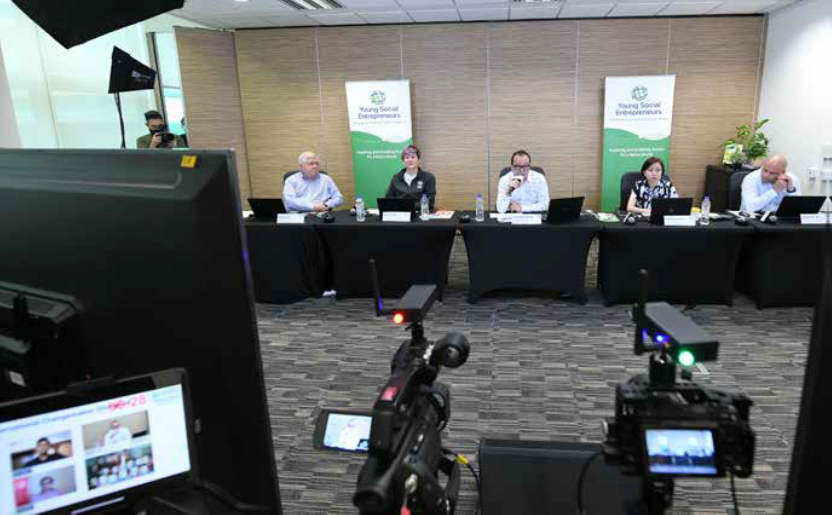
The YSE 2020 judges (from left) are Keith Chua, Chairman, Asia Philanthropic Ventures; Elim Chew, Special Advisor to SIF Young Social Entrepreneurs programme and Founder, 77th Street; Lian Wee Cheow, SIF Board Governor and Partner, PwC Singapore; Catherine Loh, CEO, Community Foundation of Singapore; and Hari Rajasekharan, Asia- Pacific Head, Digital Communications, Deutsche Bank.
“THE POST-COVID-19 WORLD WILL FURTHER WIDEN THE GAP BETWEEN THE HAVES AND THE HAVE-NOTS. IT IS EVEN MORE CRUCIAL FOR SOCIAL ENTERPRISES TO OFFER SOLUTIONS THAT ARE SUSTAINABLE AND SCALABLE,” SAYS KEITH TAN, YSE 2012 ALUMNUS.
FORGING NEW CONNECTIONS
Using digital tools, the SIF was able to connect all 109 social entrepreneurs through a comprehensive line-up, from knowledge-sharing sessions to business clinics, conducted by established social entrepreneurs and industry experts. Going online also enabled the SIF to cast a wider net and engage more people from countries “as afar as those in Africa”, shares Chin, while the participants’ cultural diversity helped to “democratise the programme”.
Indeed, a compelling argument that has emerged was the growing role “THE POST-COVID-19 WORLD WILL FURTHER WIDEN THE GAP BETWEEN THE HAVES AND THE HAVE-NOTS. IT IS EVEN MORE CRUCIAL FOR SOCIAL ENTERPRISES TO OFFER SOLUTIONS THAT ARE SUSTAINABLE AND SCALABLE,” SAYS KEITH TAN, YSE 2012 ALUMNUS. small businesses must play in defining a post-Covid-19 world. “We have seen the rise of food and beverage-based social enterprises as well as increased receptivity to home-based production. This change in paradigm can provide more inclusive opportunities and help alleviate some of the rising concerns about unemployment and work-life balance,” says David Pong, YSE 2015 alumnus and CEO of WateROAM, a social enterprise that provides potable water drinking systems for communities in disasterstricken and rural communities.
Innovation in the area of waste management is crucial, especially in Asia, where the necessary infrastructure is not fully developed, adds Matteo Chiampo, technical director at SecondMuse and YSE mentor, who was heartened to see some of these ideas take shape over the course of his interaction with the young changemakers. “Creating social enterprises that work with waste management has several advantages: They can empower local waste workers, who often operate in the informal economy.”
“Programmes like the YSE, which provide a supportive and encouraging environment, can make the difference between leaving an idea on the drawing board and growing a new venture that can help solve social issues.”
Matteo Chiampo, YSE mentor and technical director, SecondMuse
The “New Normal” may also call upon businesses to prove their relevance even more, says YSE mentor Pauline Heng and finance manager at Istari Singapore, a global cybersecurity platform by Temasek Holdings. “Businesses should stay flexible and be prepared for new opportunities, as well as tap on new technological trends such as artificial intelligence, data analytics and machine learning to better manage their efficiency and cost.”
What has remained constant, notes Chiampo, is the fact that building a social venture can still be overwhelming. “The innovator must drive change in entrenched systems, with scarce resources and untested solutions. The naysayers usually outnumber the cheerleaders. Programmes like the YSE, which provide a supportive and encouraging environment, can make the difference between leaving an idea on the drawing board and growing a new venture that can help solve social issues,” he notes.
TOWARDS THE FUTURE
Leveraging technology, YSE 2020 delivered well on aspects such as content, talent and value in its online format. In lieu of the overseas study visits that had been a mainstay of the programme, YSE Spotlight sessions featured a curated series of virtual learning journeys to Indonesia, India, and Singapore – with social entrepreneurs and industry experts sharing their experiences and insights with the participants. Drawing on the success of its inaugural run, the YSE 2021 Workshop – which took place from 23 July to 20 August this year and saw 101 participants from 16 countries – was run on a similar virtual model. A newly-piloted design thinking curriculum was also introduced this year, with 15 YSE alumni conducting the training.
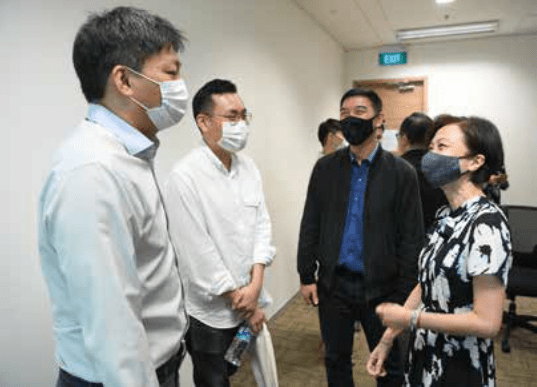
The hybrid programme allowed some face -to-face interaction among the locally-based jury panel and the mentors while the pitching sessions and business clinics for the global participants took place entirely online.
However, the in-person camaraderie was missed. “I have always believed face-to-face interactions are crucial to the power and strength of the YSE programme. After all, I am still in touch with friends I have met through the various YSE editions over the years,” muses Tan.
The future is perhaps a hybrid approach that can accommodate the best of the online modality – which provides a wider reach – with the irreplaceable value that face-to-face networking with people brings.
“By building a dynamic YSE network, we hope to better support social entrepreneurs that will enable them to thrive in the new normal through discussions, sharing of ideas and knowledge, as well as connections to potential partners and resource providers that can bring them to the next level of growth,” concludes Chin.
ON THE RIGHT TRACK
Social entrepreneurs from the six winning teams of the YSE 2020 edition share their individual experience.
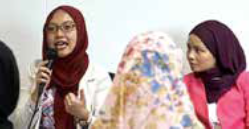
“It has been an incredible learning experience. The YSE programme exposed me to the different aspects of running a social business and creating positive social impact. The guidance from my mentors and the YSE Spotlight sessions, in particular, have helped me pivot my business effectively. I believe that the international networks built will boost my social entrepreneurial journey.”
Huda Hamid, Fempreneur Secrets, Singapore
Fempreneur Secrets aims to create a global community of economically independent women by empowering them to start profitable businesses. Members gain business knowledge and skills through monthly online courses. 20% of the course proceeds go to women from low-income households to build businesses – thus forming an ecosystem that supports and empowers one another.
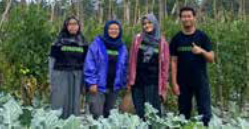
“Amid travel restrictions, we appreciate this chance to connect with social entrepreneurs and market leaders from other countries. I have gained invaluable skills and insights through the workshops and guidance from our mentors who have supported us in every step of the way. It was also refreshing to hear from the other teams and industry players about how they approach social entrepreneurship in the different markets. This provided us with fresh perspectives, and I look forward to continue engaging with the international YSE network.”
Febi Agil Ifdillah, Neurafarm, Indonesia
Neurafarm is a smart farming company that aims to improve productivity and resource-use efficiency in the agriculture industry. Through technology, it hopes to achieve global food security and improve the welfare of farmers.
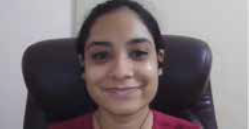
“Through the YSE workshops with market leaders and business consultants, useful tips and strategies were shared on managing a social business. I was also matched with a mentor, who shared the importance of re-framing the social impact story in a way that is easily understood in an international context. It was wonderful to see that there are other youths across the world making persistent efforts even when the odds are stacked against them. The stories of like-minded people help me feel less alone.”
Akriti Gupta, Canfem, India
Canfem manufactures and markets unique and affordable product-service solutions for breast cancer survivors. Their external breast prosthesis and mastectomy brassier are aimed at helping survivors return to society with confidence and dignity.
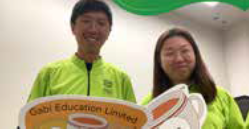
“Considering that there was a global pandemic and travel restrictions in place, the YSE programme has done a great job in adapting to the sudden change. We learnt how to be effective social entrepreneurs with digital sessions on finance, marketing, and impact measurement during the programme. Additionally, we were able to connect with and learn from business consultants and social impact leaders through the webinars and business clinics. We are so grateful to have won the funding, which will help us expand our business to promote inclusive and equitable education opportunities for all.”
Fung Ka Yan, Gabi, Hong Kong
Gabi identifies dyslexia in students between the ages of 3 and 10 years old through pre-screening, early-intervention, and training. They also provide referral services to registered specialists, should students require further assessment.
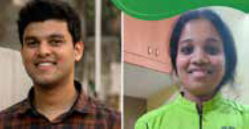
“The YSE programme in Singapore affords us a fresh and unique global perspective with speakers, business leaders, mentors and alumni from around the world – something we rarely get back home.”
Rahul Adhikari, International Changemaker Olympiad (ICO), India
ICO gives school children a platform to identify social and environmental problems, and launch initiatives to tackle them. They hope to develop children into empathetic, conscious citizens of the world with an action-oriented mindset.
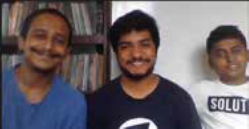
“As a global innovation hub, Singapore inspires and encourages collaboration between its people and the world. The YSE programme is a key example of this thinking, and we are honoured to be a part of a network that is committed to bettering lives.”
Anas Hossain Makki, Safewheel, Bangladesh
Safewheel aims to provide affordable ambulance and doorstep medical services to rural communities in Bangladesh.
